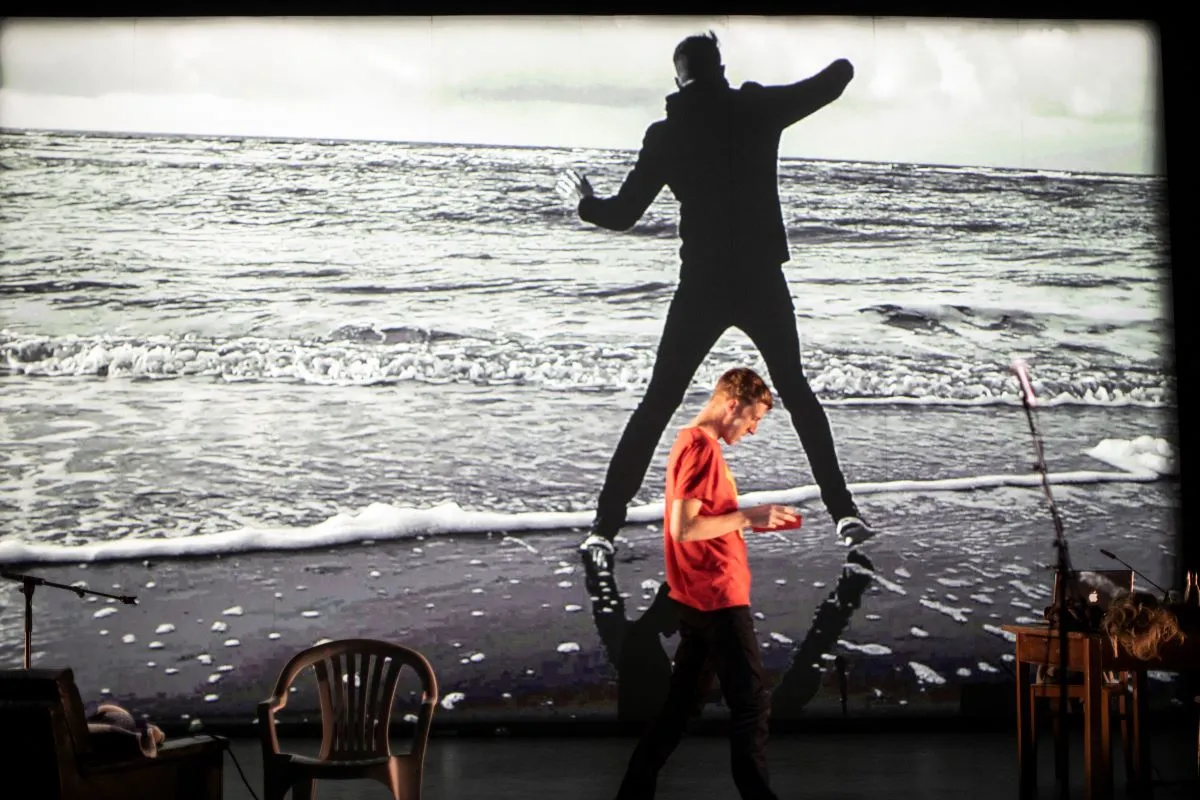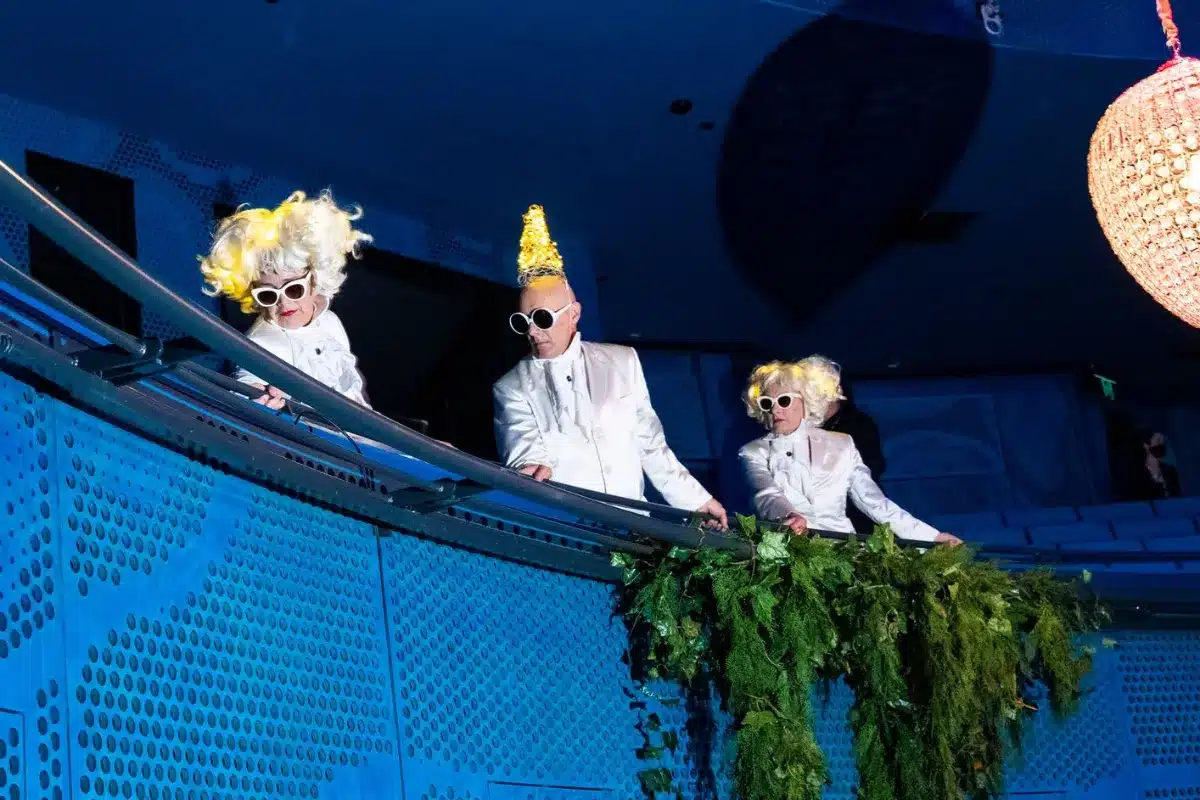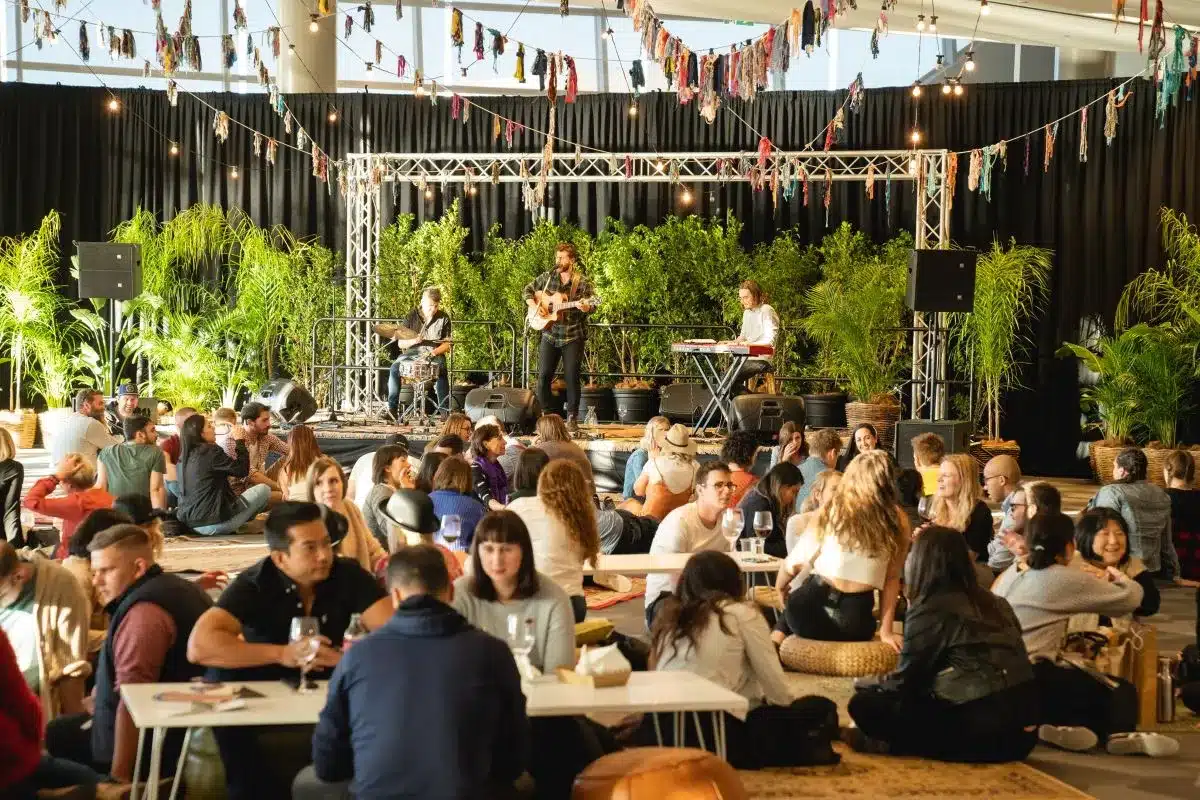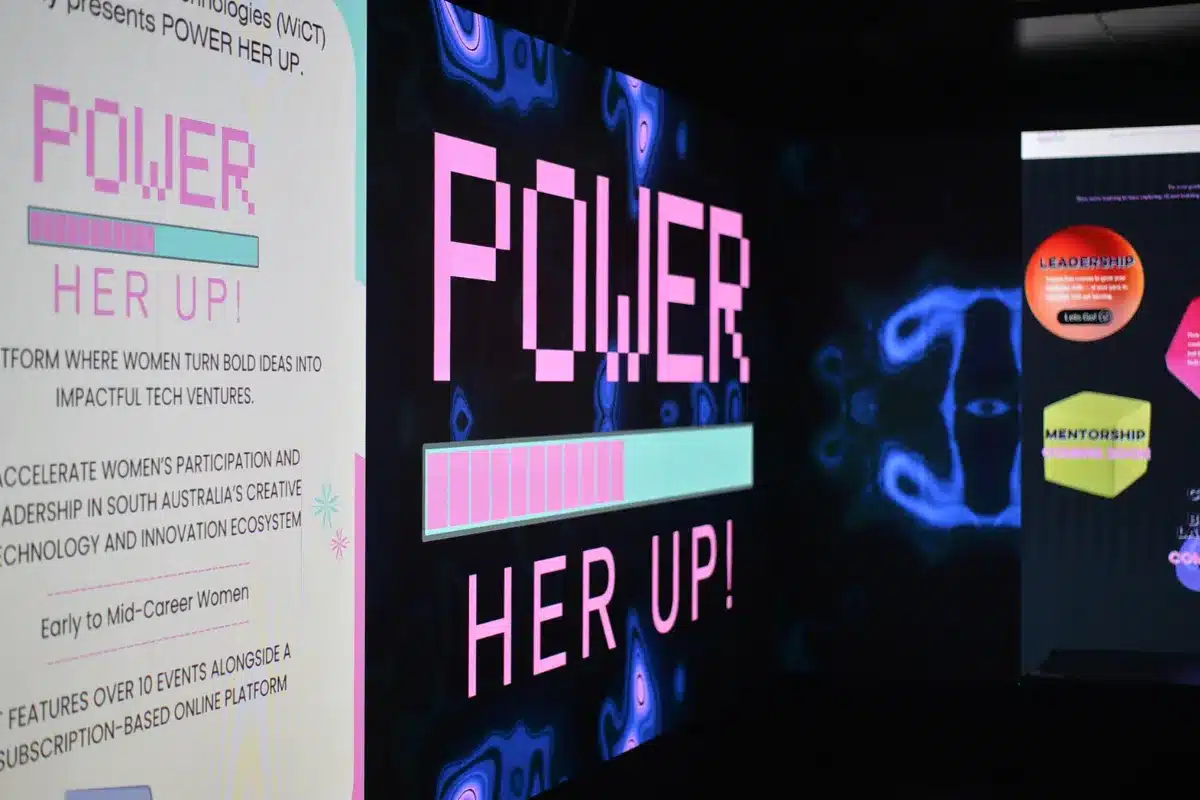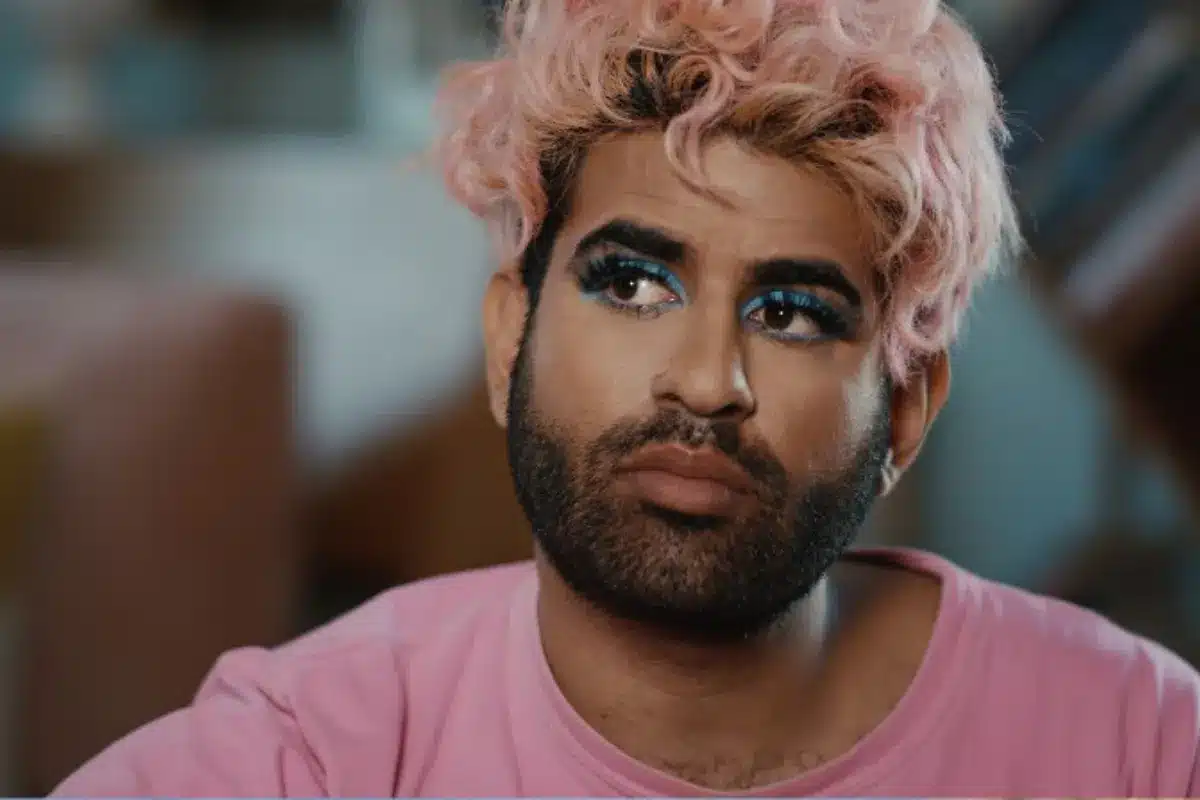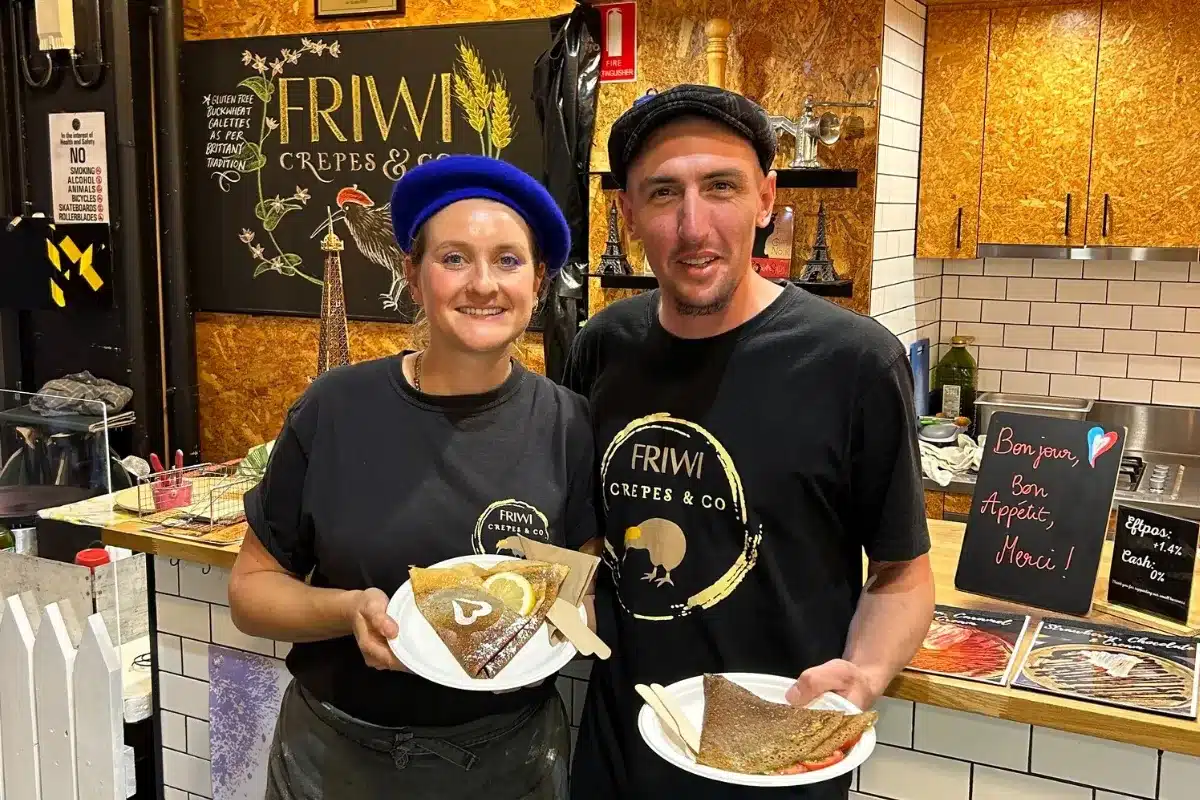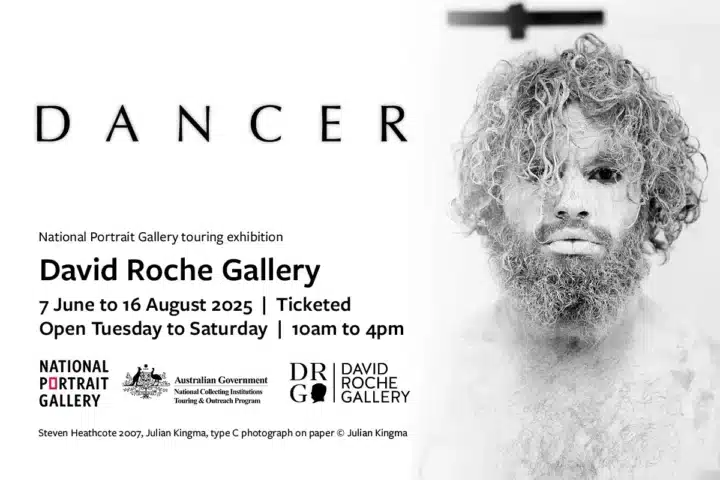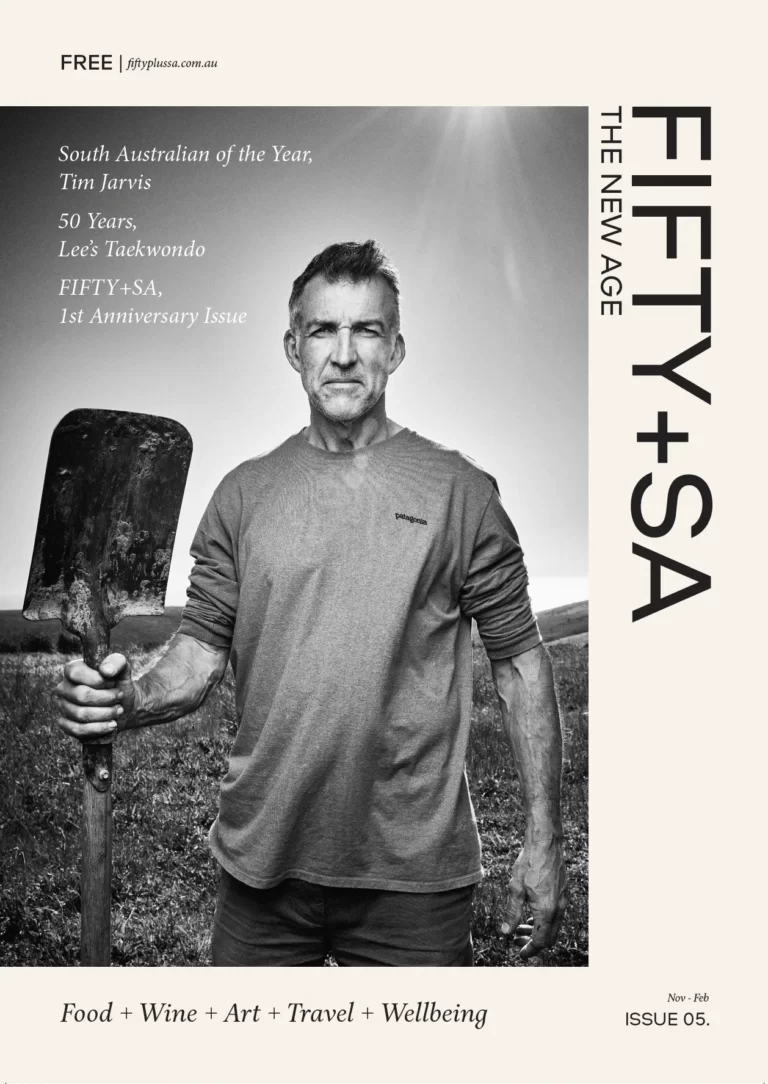I am in two minds about Who Killed My Father. On the one hand it seems an appropriate show to include in an international arts festival and it sits comfortably beside the other one-man play Blue in this Adelaide Festival.
I can see how Who Killed My Father would excite the programmers, to have a celebrated writer such as Édouard Louis attending the Festival, performing his one man show based on his autobiographical book and to include him as a guest of Writer’s Week. All of that makes sense but also seems slightly curious since there is a different stage adaption of this story created in English which sounds more demanding of an actor, and possibly more theatrically compelling for an audience.
The idea of having this play adapted from autobiographical sociologist writing presented by the author is intellectually very exciting but as it turns out it is also theatrically pretty dull and dare I say a little self-indulgent.
In a way, the production parallels the frequent attempts at self-glorification the boy Édouard persists with in his working-class childhood home, as he attempts to impress his disinterested father with dance and song.
So, while it definitely ticks certain boxes, I was left pondering the appropriateness of the boxes actually being ticked.
Who Killed My Father is minimalist theatre, it is a monologue that tells the story of an adult gay man returning to visit his sickly father after some years away recovering from, or at least putting behind him, a tortured childhood. An armchair downstage represents the father, a writer’s desk and chair represents the position of freedom where the sole player (Édouard Louis) is seated as the audience enters the theatre.
From the outset, as we the audience enter the sacred creative space of Édouard Louis, it seemed pitched to designate the event as being a loftily profound experience for us. The serious writer at his desk in his empty grey room.
Once the auditorium lights dim, a pale, slow and repetitive video is projected onto the back wall of the stage, vision of travelling along a slightly misty road suggesting the journey has begun. Then the monologue begins via a microphone, in French (with subtitles in English also projected onto the back wall). This device of using the microphone all through the show becomes very detaching.
Immediately there is a problematic conflation announcing that misogyny, homophobia and classism are all actually racism. This struck me as a bit dumb, either a problem in the translation or an awkwardly general, oversimplified perspective being presented.
The various stories told through the microphone by Édouard Louis are presented in a quietly uncompassionate tone, because the delivery is through speakers all the details seem detached, cold, and this unrelenting tone seldom alters throughout the ninety minute span of the production.
The work isn’t entirely devoid of humour, we are treated to a few scenes of levity which basically demonstrate abandon, and the defiantly camp nature of this working-class boy, but these moments all curiously draw on American references incongruous to the overall thesis being presented, so while they’re amusing, welcome breaks to the monotony of the piece, they also seemed meaningless in terms of any character development.
Louis never speaks of his own desires beyond wanting his alcoholic and physically destroyed father to celebrate his little boy’s camp nature, or wanting to enact revenge on his loving mother for asking him why he “behaves like a faggot.”
The main problem of the story seems to be that Édouard Louis never got the attention he wanted from his dad because he was too young to understand why his dad was an alcoholic and detached, even though his dad does actually grant him one significant wish. This gesture passes over Édouard’s head.
Suddenly, in a final denouement, Édouard dresses up in a costume resembling the one he wore all those years ago, only to be ignored by his father, then proceeds to announce various legislations passed by a quartet of politicians, and these are who he blames ultimately for the untimely death of his father.
So, I was left in two minds about the production. It seemed like a Readers Digest Condensed version of his celebrated book which, I suppose, I should now go and read if I want the full story. And it also seemed like a story about a kid who is deeply guilt ridden because he never understood all the historical forces at play that made his parents afraid of his blatant gayness.
Either way, for me, it was a heavy yet passionless experience.
Qui a tué mon père (Who killed my father)
Season has ended
Dunstan Playhouse, Adelaide

